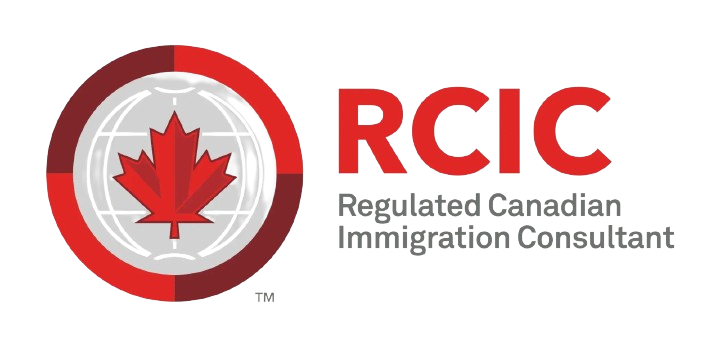Australia's Tasmania has become an increasingly appealing destination for skilled migrants due to its robust economy, growing job market, and high quality of life. In 2025, the Tasmania Skilled Occupation List continues to expand to meet the demand for skilled professionals in key sectors such as healthcare, engineering, ICT, education, and construction.
The list outlines high-demand occupations that Tasmania prioritizes in its skilled migration program to attract qualified individuals who can contribute to the state's economic development and community growth. Here's a deep dive into the TOSOL, pathways to permanent residency, eligibility criteria, and the benefits of living in Tasmania.
Overview of the Tasmanian Skilled Migration Program
Tasmania's skilled migration program is part of Australia's broader effort to attract qualified individuals to meet regional labor demands. Tasmania offers state nomination for the following visas:
- Skilled Nominated Visa (Subclass 190) - A permanent residency visa, ideal for skilled workers who intend to live and work in Tasmania long-term.
- Skilled Work Regional (Provisional) Visa (Subclass 491) - A five-year provisional visa with a pathway to permanent residency after living and working in regional Tasmania for at least three years.
Both visas require applicants to demonstrate their skills and qualifications for occupations on the TOSOL and meet specific criteria related to work experience, language proficiency, and commitment to Tasmania. As a general rule, subclass 190 visa holders must remain in Tasmania for a minimum of two years, while subclass 491 visa holders are encouraged to reside and work in the state for at least three years to qualify for permanent residency.
Check Your Eligibility
Eligibility Criteria for Tasmania State Nomination
The eligibility requirements for Tasmania's skilled migration program vary depending on whether applicants are onshore or offshore and the visa subclass they apply for. Here are the general requirements:
- 1. Skill Assessment: Applicants must have a positive skills assessment in an occupation listed on the TOSOL. The skills assessment validates the individual's qualifications and experience, ensuring they meet Australian standards.
- 2. Work Experience: Most applicants need to have relevant work experience in their nominated occupation. Tasmania often prioritizes candidates with local experience or those who are already working in high-demand roles.
- 3. Commitment to Tasmania: Applicants must demonstrate a genuine commitment to living and working in Tasmania. This may include providing a statement of intent, details of local employment, or evidence of community involvement.
- 4. Expression of Interest (EOI): Submitting an EOI through the Department of Home Affairs' SkillSelect system is required. Applicants should aim to meet Tasmania's nomination criteria, which often prioritize individuals with higher points or specific attributes.
- 5. English Language Proficiency: A minimum level of English proficiency is required, usually demonstrated through IELTS or equivalent tests.
Application Process for Tasmania State Nomination
The application process for Tasmania's skilled migration program involves several steps
- 1. Expression of Interest (EOI): Submit an EOI on SkillSelect, indicating interest in Tasmania's skilled migration program.
- 2. Submit a Nomination Application: Apply for state nomination through the Migration Tasmania portal. This includes uploading supporting documents, such as your skills assessment, resume, and proof of English proficiency.
- 3. Receive an Invitation: If selected, you will receive an invitation to apply for the respective visa. Processing times may vary, with priority given to applicants in high-demand roles.
- 4. Lodge the Visa Application: After receiving a state nomination, submit a visa application through the Department of Home Affairs, ensuring all criteria are met.
- 5. Obligations for Visa Holders: After the visa is granted, subclass 190 holders must remain in Tasmania for at least two years, while subclass 491 holders are expected to stay in regional Tasmania for at least three years to gain eligibility for permanent residency.
Living and Working in Tasmania: Benefits for Skilled Migrants
Tasmania offers numerous benefits for skilled migrants, including:
- 1. Affordable Living: Tasmania is known for its lower cost of living compared to larger Australian cities, making it ideal for individuals and families looking to settle comfortably.
- 2. Lifestyle and Environment: Tasmania's natural beauty, from mountains to coastlines, offers a high quality of life with numerous outdoor activities, contributing to an appealing work-life balance.
- 3. Community and Support Networks: Tasmania's smaller population fosters a strong sense of community, making it easier for migrants to integrate and connect with locals.
- 4. Career Opportunities and Professional Growth: The demand for skilled professionals in various sectors opens up career growth and stability for individuals with the right qualifications.
Get Free Consultation Call
Important FAQ's
Yes, Tasmania welcomes offshore applicants, particularly those with skills in high-demand occupations. However, competition for offshore positions can be high, and the state may prioritize onshore candidates with existing ties to Tasmania.
Processing times vary depending on occupation demand and priority attributes. For high-demand roles, applicants may receive an invitation within a few months, while others may wait longer.
A job offer is not mandatory but can significantly enhance an applicant's eligibility, especially for the subclass 190 visa. Those already employed in Tasmania may have a competitive advantage in the nomination process.
Tasmania accepts IELTS, TOEFL, and PTE Academic scores as proof of English proficiency. Applicants must meet the minimum language requirements, generally equivalent to a "Competent" level.
Yes, immediate family members (spouse and dependent children) can be included in the primary applicant's visa application, allowing families to migrate and settle in Tasmania together.
The 2024 Tasmania Skilled Occupation List offers skilled migrants a pathway to a fulfilling career and lifestyle in one of Australia's most picturesque states. For those interested in contributing to Tasmania's economic growth and enjoying its unique lifestyle, this is an ideal time to explore the TOSOL and pursue a future in Tasmania.












